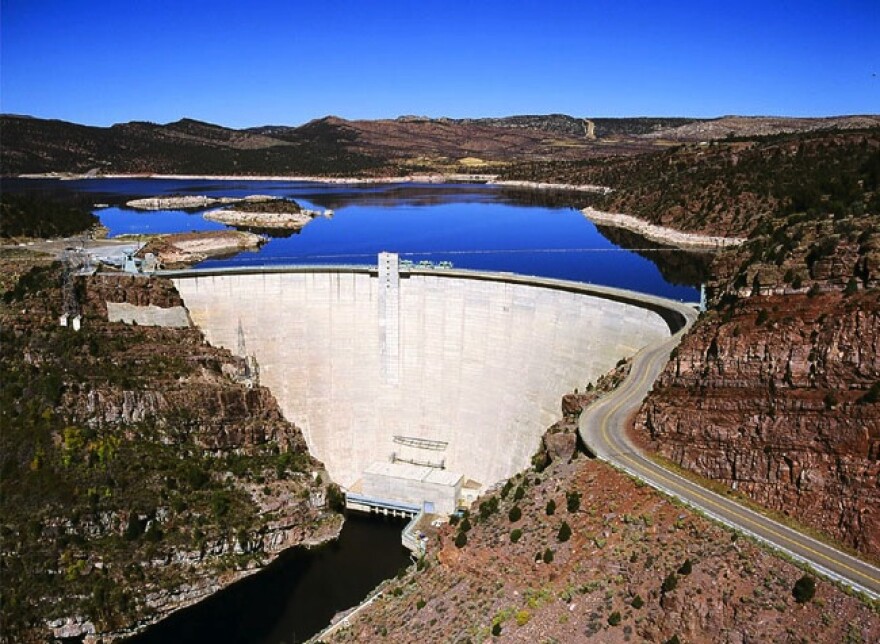Legislation to study the cost of diverting water from the Green River to the Wasatch Front is headed for a final vote in the State Senate this week. But opponents say the potential project is misguided.
State Rep. Joel Ferry, R-Brigham City, is carrying H.B. 328, which the Senate Natural Resources Committee passed Monday. The bill directs the state Division of Water Resources to update a 2002 study that found building a pipeline would cost anywhere from $200 million to $400 million, adjusted for inflation.
Ferry says he came across the study before the start of the legislative session and decided it would be good to have updated figures.
“Our state is expected to grow, so I want to make sure we have all of the information available,” he said.
Ferry first proposed expanding on the original study by hiring an outside consulting firm to look at new ways to get water from the Green River to the Wasatch Front. That carried a $200,000 fiscal note, which Ferry said would make it harder for the bill to pass. Instead, he settled for an update of the original study, which comes with a cost of $2,200. If the bill passes, the Division of Water Resources will absorb the cost.
But water conservationists say there’s no water shortage on the Wasatch Front. They also say that the high cost of the project and concerns about over-appropriation of the Colorado River make diverting a tributary like the Green River a bad idea.
“It’s like proposing a coal-fired power plant in the middle of the [Salt Lake] valley,” said Zach Frankel, executive director of Utah Rivers Council. “The only difference is, people don’t know enough about water to realize how ridiculous that proposal is.”
According to the Division of Water Resources, Utah can only divert 20,000 more acre-feet of water from the Colorado River under the Colorado River Compact, which is equivalent to the annual amount of water used by a city the size of West Jordan.
And because the Green River provides water to Lake Powell, any water diverted upstream to the Wasatch Front could potentially detract from the Lake Powell Pipeline. Rep. Carl Albrecht, R-Richfield,raised concerns about this during the House Natural Resources Committee hearing for the bill.
“I have no objection to the study, but if it takes water from Lake Powell Pipeline then you’re in for a fight,” he said.
Ferry was hesitant to advocate for the Green River diversion project and reiterated that his bill only prompts the Division of Water Resources to update the cost study.
“I think people are taking this two or three steps down the road,” he said. “It is expensive, and it may never happen, but just to have updated numbers I don’t think is a bad thing.”



